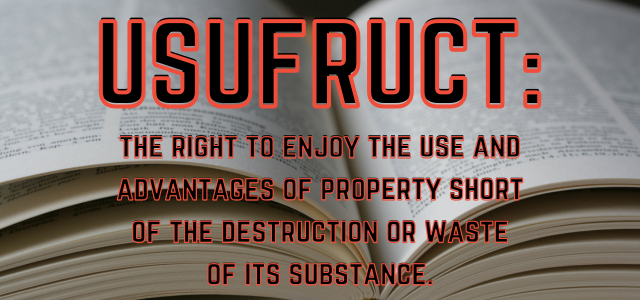The library is one of the most valued public instructions left in the US. With 90% of Americans surveyed by the Pew Research Center saying that the closure of their public library would affect their community. If you haven’t been to your local library in quite some time, they have kept up with current technological gains. Having more than just books, magazines, and a newspaper archive; many also have computers for public internet use, wi-fi, and digital media. The library is based upon the concept of usufruct. That is the rights to use something and the rights to enjoy the derivatives of something, like reading a book from the library or enjoying a walk in the city park, but not the right to destroy something. The library and other public institutions are operated by the state in the interest of the public, who through the state, hold ownership in common.
The National Park Service is a good additional example of this concept. The parks are protected so that all visitors may enjoy the beauty of, relatively, undisturbed nature. The prohibition of the opposite from usufruct, abusus: the right to destroy or alienate something, is reenforced by law. Injuring one of these park, by littering, polluting, hunting, or removing other natural resources is punishable by fines, imprisonment, or both. If we apply this concept of usufruct to things outside the traditional booking lending and national parks we can arrive at an end point where, as a society, we need to produce less and waste less to meet the same or even more needs.
Consider the crib, or other reusable baby supplies. If every new parent did not require a new crib, car seat, etc., society could meet the needs of the same number of parents while using less of our limited resources. What happens to the average car seat when a baby outgrows it? Instead of throwing it away, what if there was somewhere to take it when you didn’t need it anymore? It could stay there until someone else needed it. If it is damaged, it could be repaired. This is usufruct applied to personal property. We do some of this already in a limited fashion, just in much smaller groups. Have you ever received hand-me-down clothing or a bicycle from a relative or neighbor? Use it, but don’t purposely destroy it. If it’s obsolete it will likely get replaced, but it can be torn down for parts instead of sitting in the landfill. Expand the concept of the lending library to tools. Most households have basic tools, but don’t need them everyday. What if you could go to your community center to borrow a tree trimmer, or post digger. Or anything you might only use once or twice a year should you otherwise keep your own.
That is The Library of Things, but you don’t need to wait for some sudden shift in societal opinion. You can network with you neighbors for the free use and exchange of items, either on a temporary on long term basis between each other.

